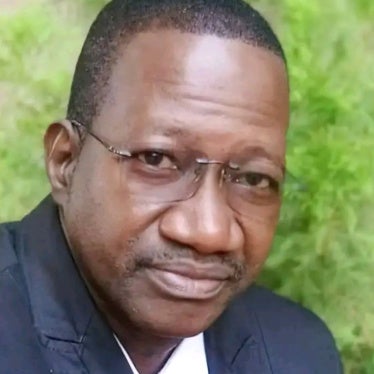“Yordani, as in the Jordan river. That’s where they put prisoners and beat them,” a former prisoner in Rwanda told Human Rights Watch. In the New Testament, John the Baptist was washed of his sins in the Jordan River. In Rwanda, it’s described by former prisoners as a “place of fear,” where prisoners are forced into a large metal container filled with water and almost drowned and beaten, apparently as punishment.
“They submerged us with our clothes on, and then we were pulled out and beaten in the mud. We were made to run around the courtyard, barefoot, soaking wet, and beaten. I don’t have any words to describe it,” said another former prisoner. “Some people died… when we saw someone come out of there, we didn’t see a man anymore.”
For decades, Human Rights Watch has documented an entrenched culture of torture and ill-treatment of detainees in Rwanda with near total impunity.
Our new report indicates there may be hope for change.
But for change to occur, and to address the systemic nature of the abuse, the Rwandan government and partners like the European Union — which announced a €19.5m “Justice and Accountability Programme” with Rwanda’s justice ministry in January — need to examine the gravity of the abuses in the country’s official and unofficial detention facilities.
Our research, conducted between 2019 and 2024, found that detainees in Rubavu and Nyarugenge prisons and a safe house in Kigali known as "Kwa Gacinya" were subjected to horrific torture and ill-treatment and, at times, unlawful detention.
We found that the very institutions that are mandated to safeguard people’s rights and prevent such abuse, such as the judiciary and the National Commission for Human Rights, failed to transparently investigate and report on allegations brought to them.
However, on 5 April, the Rubavu High Court, in the country’s Western Province, convicted Innocent Kayumba, a former director of Rubavu and Nyarugenge prisons, of the assault and murder of a detainee at Rubavu prison in 2019, and imposed a 15-year sentence and a substantial fine.
Two other prison officers and seven prisoners, who were accused of acting under instruction, were convicted of beating and killing prisoners. Three other correctional officials, including former Rubavu prison director Ephrem Gahungu and deputy director Augustin Uwayezu, were acquitted.
On the one hand, this is a rare occasion of accountability for abuse by authorities. However, all the accused were acquitted of the crime of torture, which under Rwandan law carries a heavier penalty. In addition, several senior prison officials were acquitted altogether despite the apparently damning evidence against them, according to former detainees.
The trial and our research raise important questions about the failure of Rwandan institutions to protect detainees from abuse. Kayumba was transferred from Rubavu to Nyarugenge in 2019, the year he killed the detainee at the centre of the court case, and was allowed put in place the same abusive practices in a second prison.
The trial did not cover abuse at Nyarugenge prison, nor did it question the judiciary and the correctional service’s repeated failure to order investigations into allegations of torture brought to them.
Where the EU comes in
The EU’s projects purport to improve the delivery of justice, improve “social and economic reintegration measures” for detainees, and enhance accountability mechanisms.
But the risk of torture, ill treatment, and other human rights violations is not referenced in its ‘Action Document,’ the plan published by the EU Commission. The National Commission for Human Rights is a partner, even though it is not independent and is in constant denial with regards to torture and ill-treatment.
The Rwandan government and its backers have an opportunity to address torture.
The Rwandan government should cooperate with torture-focused mechanisms and submit its long overdue state party report to the UN Committee against Torture and permit the subcommittee on Prevention of Torture and other Cruel, Inhuman or Degrading Treatment or Punishment to resume its visit to detention facilities unhindered.
Rwanda’s international partners should ask for demonstrated commitments to investigate torture in Rwanda’s prisons.
Such investigations should be conducted with the assistance of the African Commission on Human and Peoples’ Rights and United Nations experts on torture and prison conditions and its findings should be made public.
Rwanda’s partners should make clear that their support for the country’s justice system is conditional on ensuring that no detainee ever be subjected to “Yordani” treatment ever again.








